Criminology > QUESTIONS & ANSWERS > J10 LESSON 3 EXAM (2021) - ASHWORTH version 2_ Ashworth J10 Criminal Investigation Lesson 2 Exam (20 (All)
J10 LESSON 3 EXAM (2021) - ASHWORTH version 2_ Ashworth J10 Criminal Investigation Lesson 2 Exam (2021) attempt score 95%
Document Content and Description Below
Criminal Investigation Lesson 2 Exam 2 95/100% Correct Question 1 (5 points) This exchange principle shows that every contact leaves a trace. Bogard's Beccaria's Locust's Questio... n 2 (5 points) Based on information obtained from witnesses, victims, and other persons previously interviewed, what should still occur? Preliminary sweep Precursory investigation Aid the injured Question 3 (5 points) When a piece of evidence is unknown, it is referred to as: unknown evidence. unrelated evidence. unusual evidence. Question 4 (5 points) This type of evidence is easily perishable or destroyed: ephemeral evidence. temporary evidence. soluble evidence. Question 5 (5 points) Blood, fingerprints, soil, and firearms are examples of: Question 5 options: documentary evidence. tangible evidence. testimonial evidence. Question 6 (5 points) Statements are considered this type of evidence. Documentary evidence. Physical evidence. Tangible evidence. Question 7 (5 points) Of greatest value to investigators, unique impressions are called: resistance ridges. brushing ridges. rasping ridges. Question 8 (5 points) Blood that is projected from wounds where bullets exit the body produce this type of spatter. Backward Horizontal Vertical Question 9 (5 points) ALS stands for: agency light sources. agency limited system. alternative light system. Question 10 (5 points) The acronym C.I.A. stands for crime, identification, and: acquisition. acquiring. adaptation. Question 11 (5 points) A whorl is recognized by: friction ridges that resemble rolling hills, without defining the center. a series of straight lines leading to a circular center. well-defined center or core formed by friction ridges of tightly wound loops. Question 12 (5 points) Crime scene photography is also known as: technical photography. methodological photography. scientific photography. Question 13 (5 points) The inner area of a crime scene is also known as the: fringe. bordering. marginal. Question 14 (5 points) A bullet involved in a crime scene is normally tested in a(n): outdoor shooting range. water tank. indoor shooting simulator. Question 15 (5 points) This type of characteristic is considered the definition of what evidence has in common. Similar Trait Physical Question 16 (5 points) This type of evidence includes objects that are undetectable with the unaided eye. Impression evidence Biological evidence Tangible evidence Question 17 (5 points) The first stage in the investigative process is the: preliminary investigation. follow-up investigation. case preparation/prosecution. Question 18 (5 points) The most important aspect for the responding officer is the preservation of: response time. life. criminal activity. Question 19 (5 points) Patterns of blood stains are known as: spray. splashes. splotches. Question 20 (0 points) Incorrect When investigators arrive at a crime scene, their first step should be to: contaminate the crime scene. look at the evidence. contact their supervisor. Attempt Score: 95 / 100 - 95 % Overall Grade (highest attempt): 95 / 100 - 95 % [Show More]
Last updated: 2 years ago
Preview 1 out of 4 pages

Buy this document to get the full access instantly
Instant Download Access after purchase
Buy NowInstant download
We Accept:

Reviews( 0 )
$14.00
Can't find what you want? Try our AI powered Search
Document information
Connected school, study & course
About the document
Uploaded On
Apr 27, 2021
Number of pages
4
Written in
Additional information
This document has been written for:
Uploaded
Apr 27, 2021
Downloads
0
Views
100

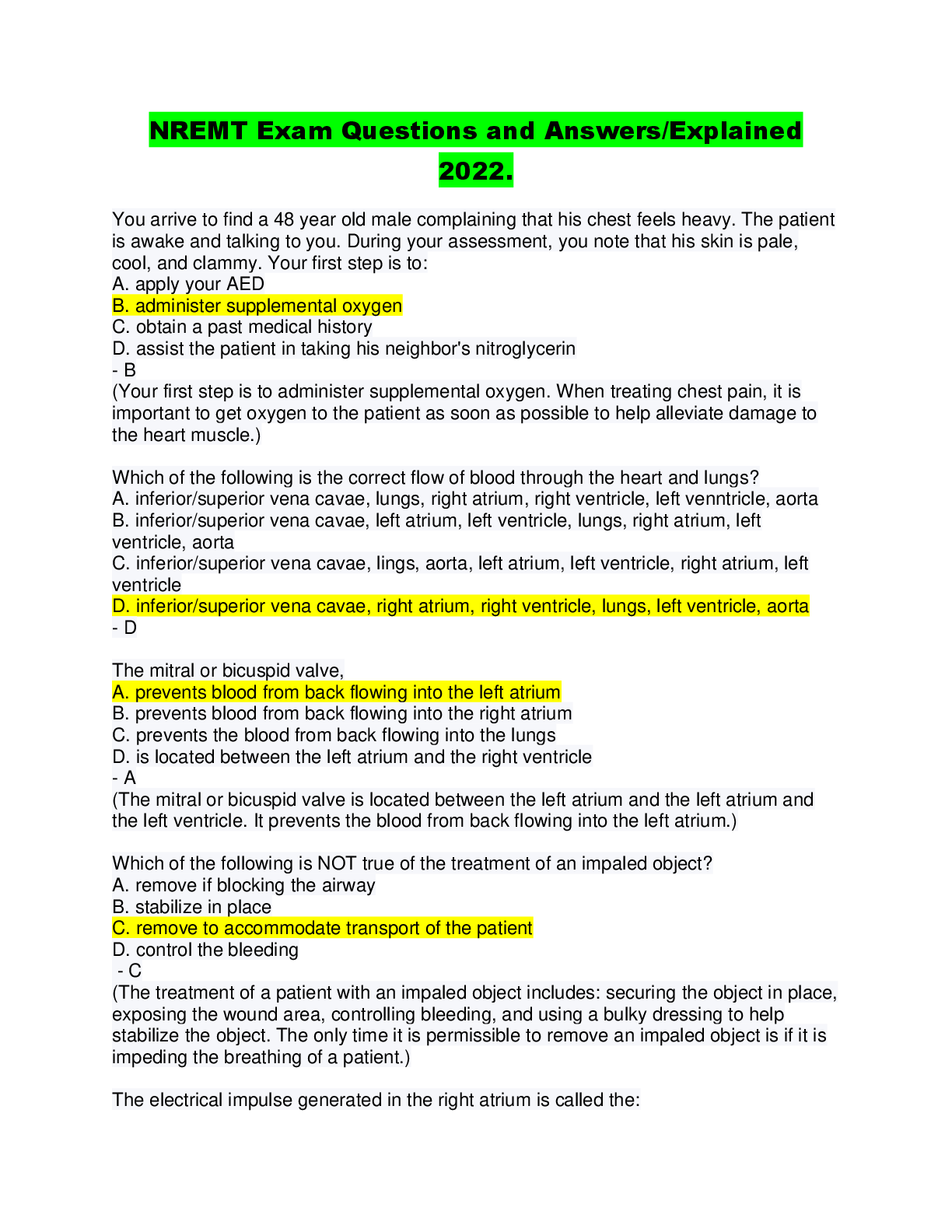
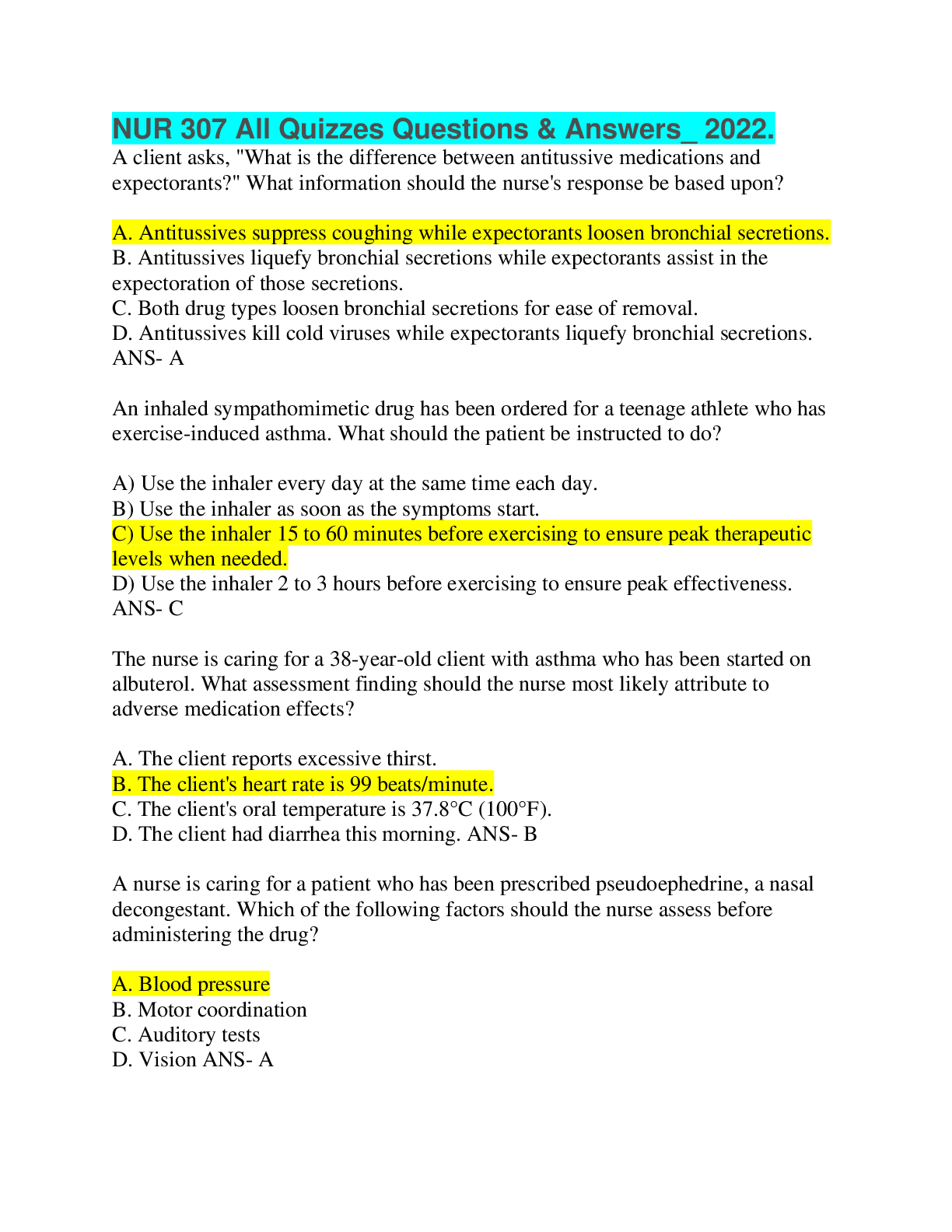


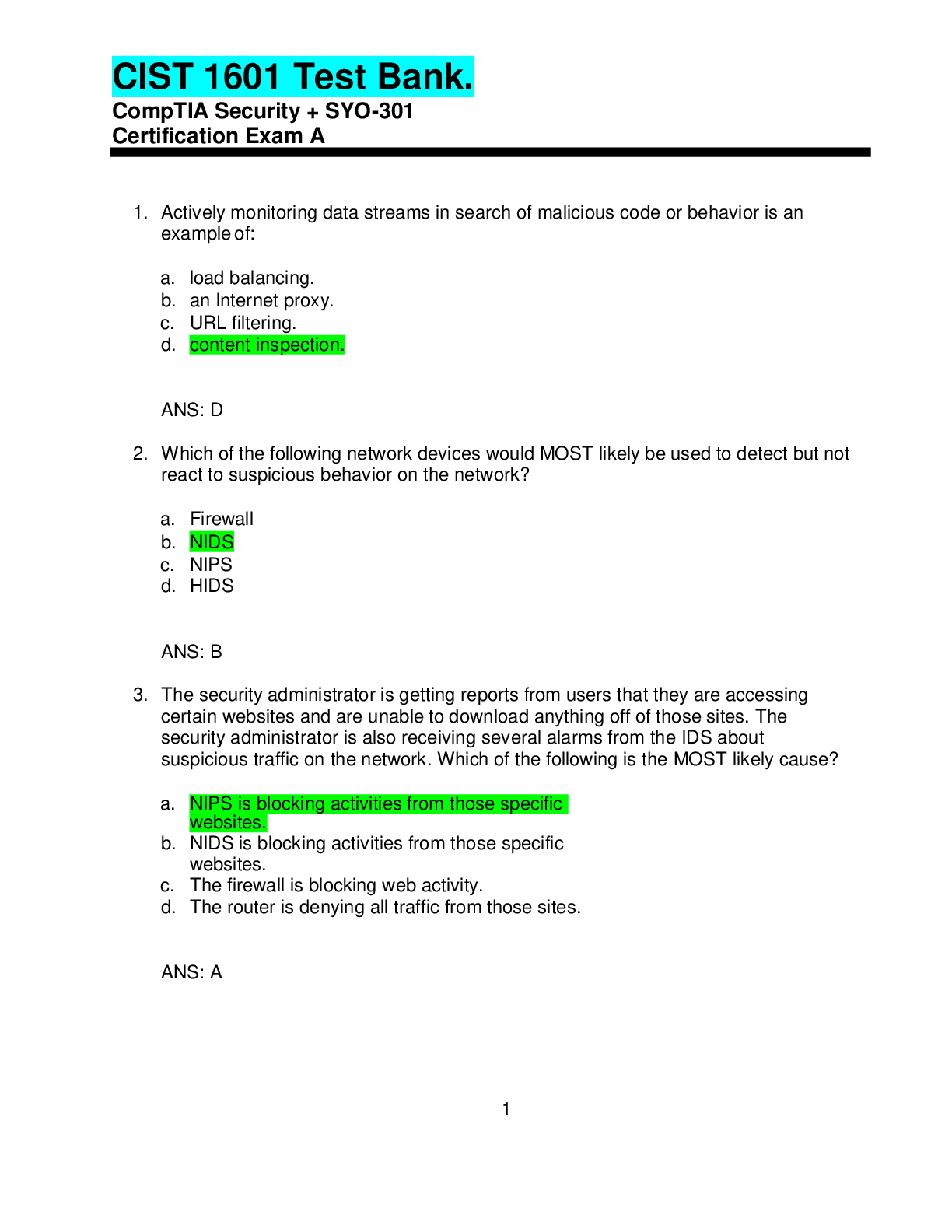
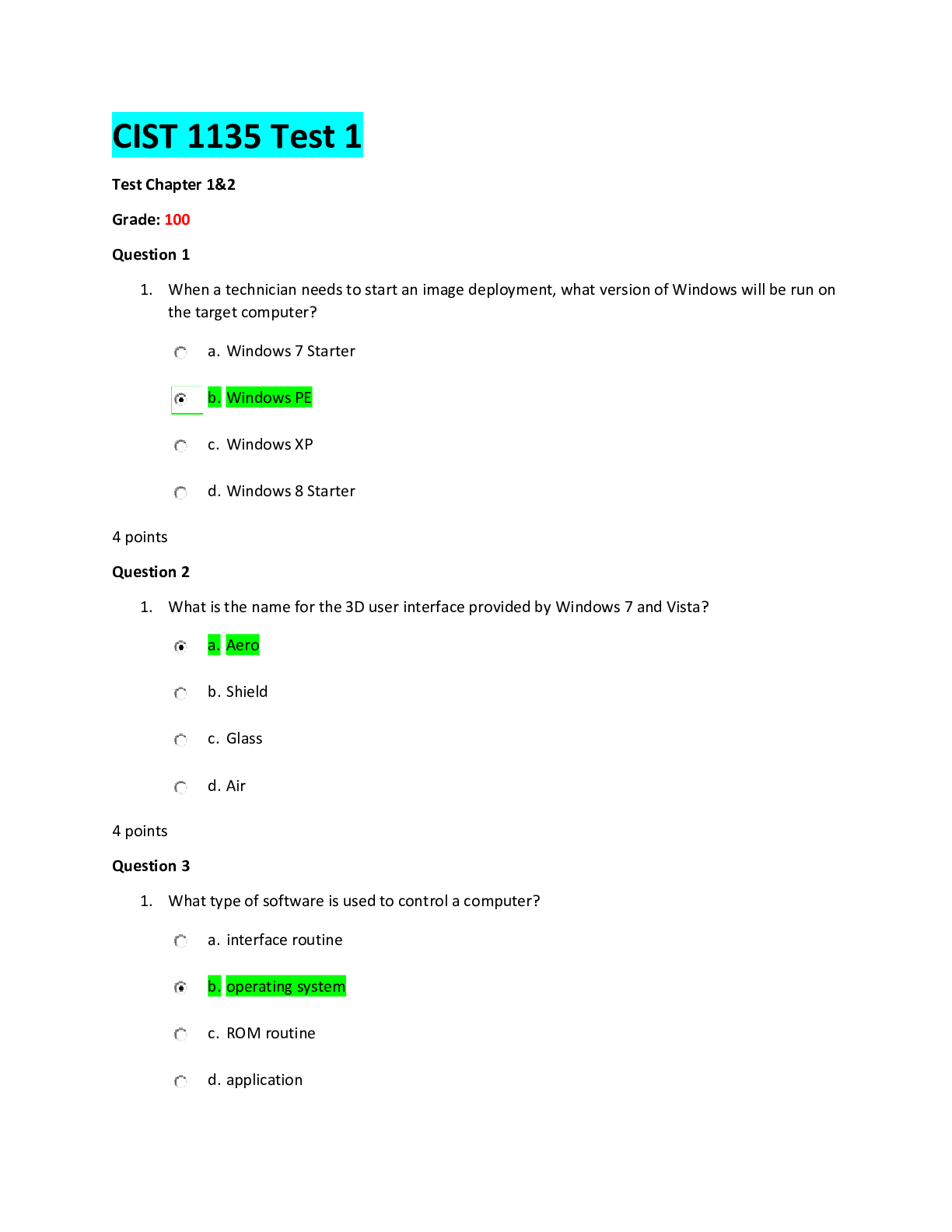
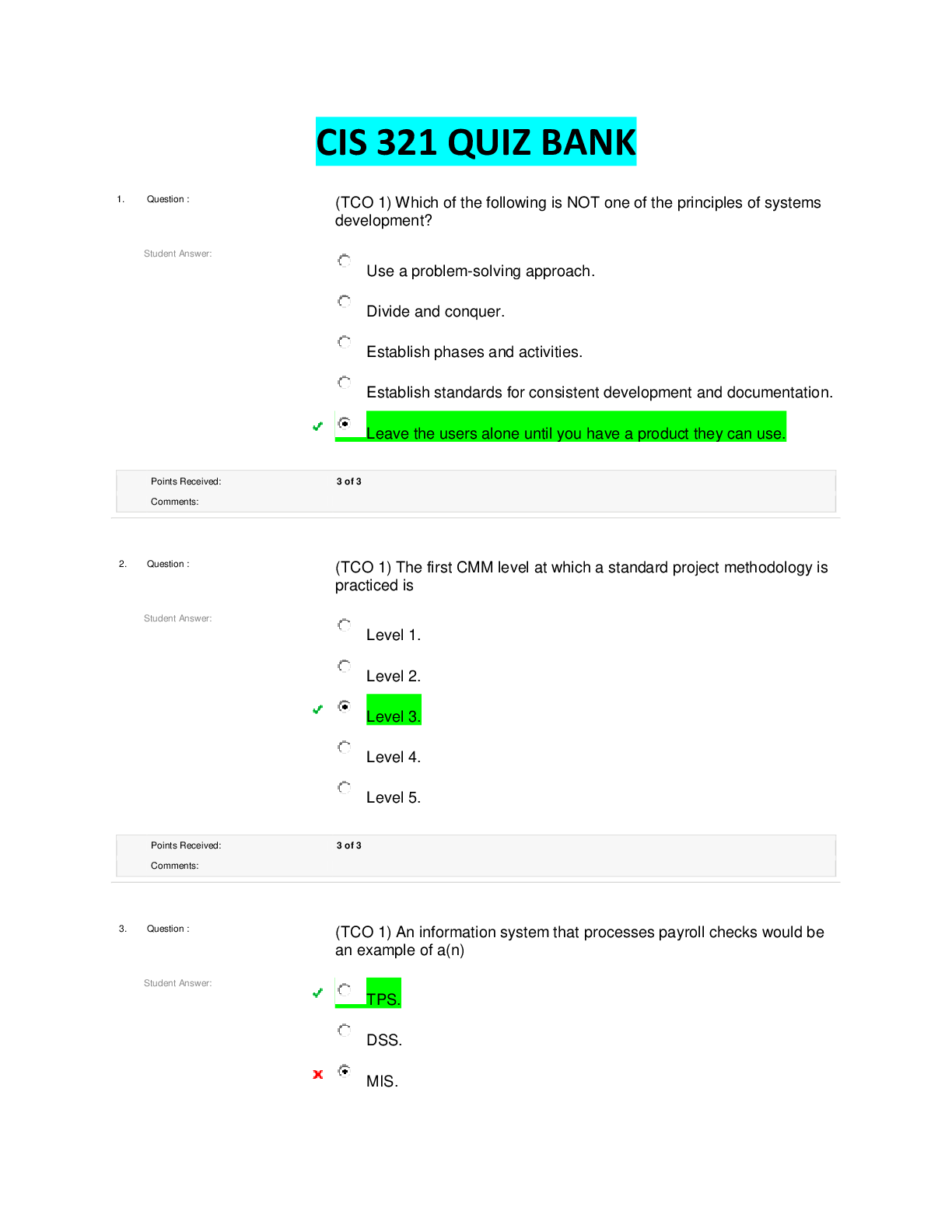
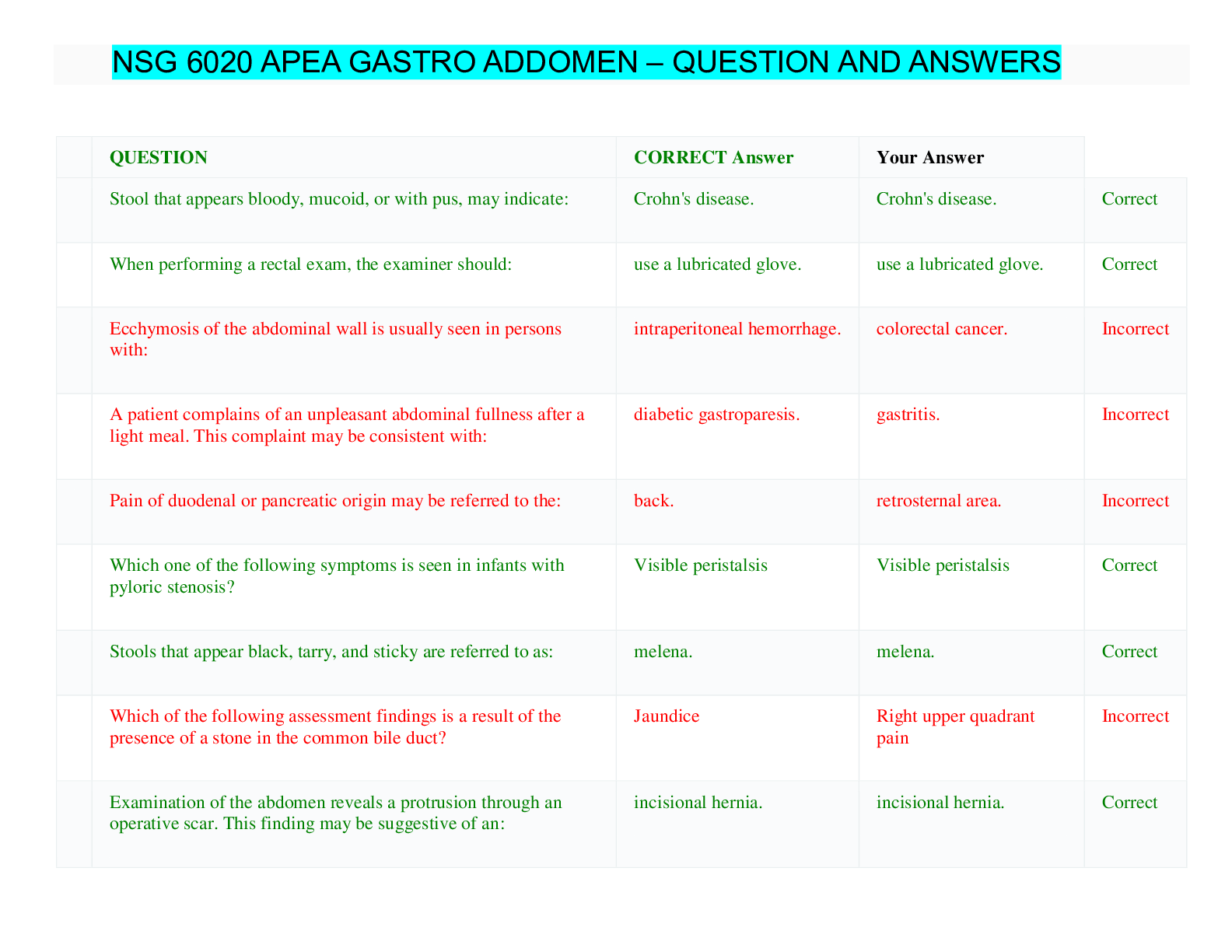
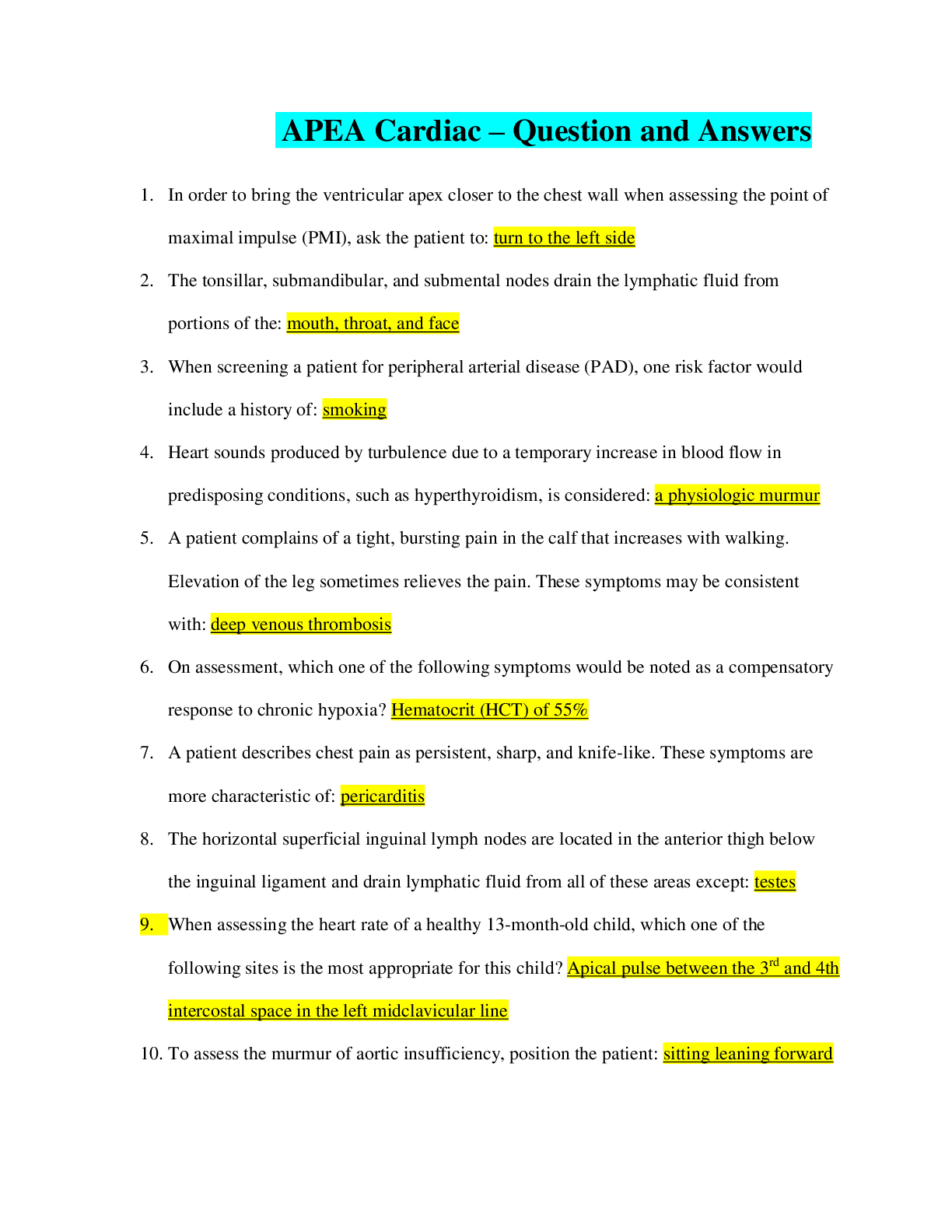


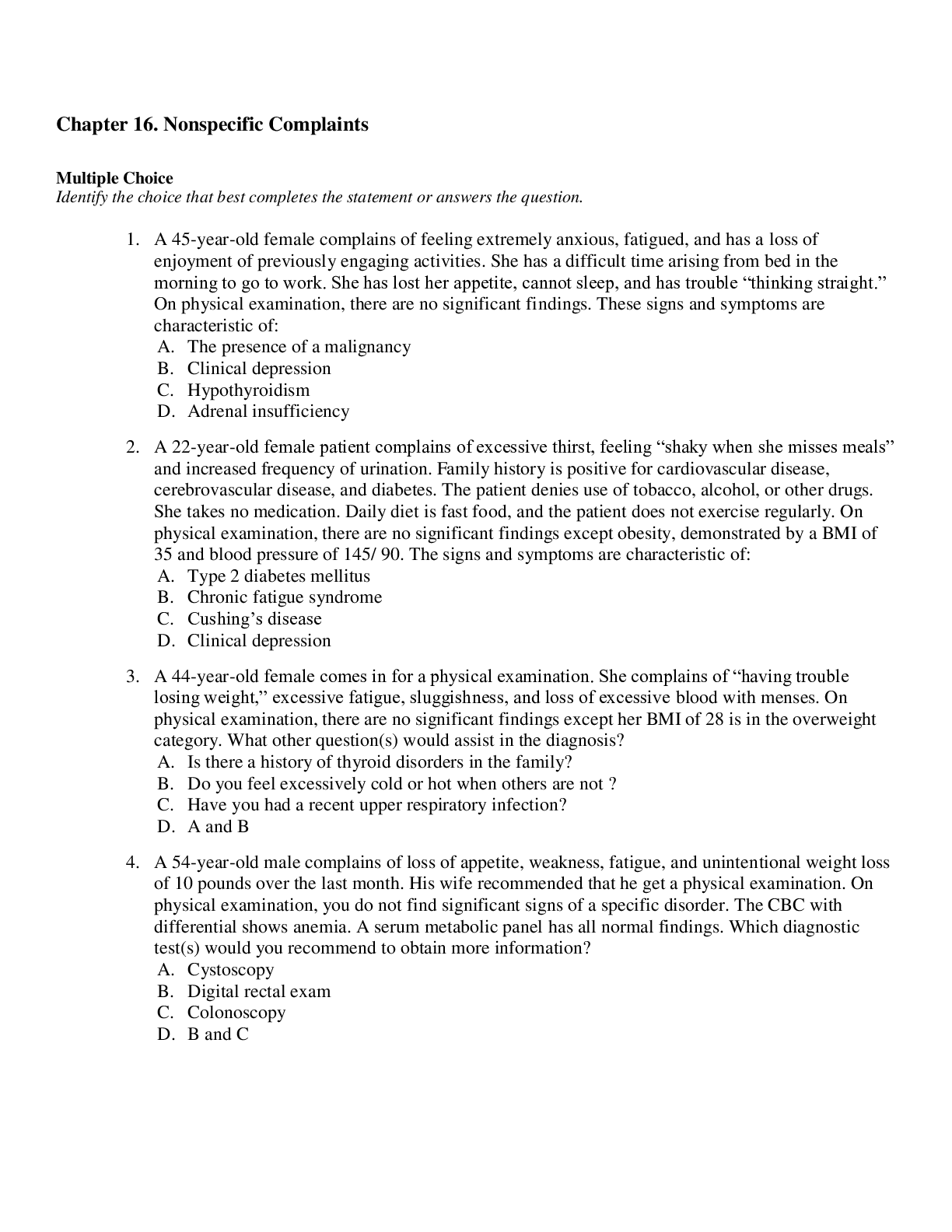




 2022.png)

